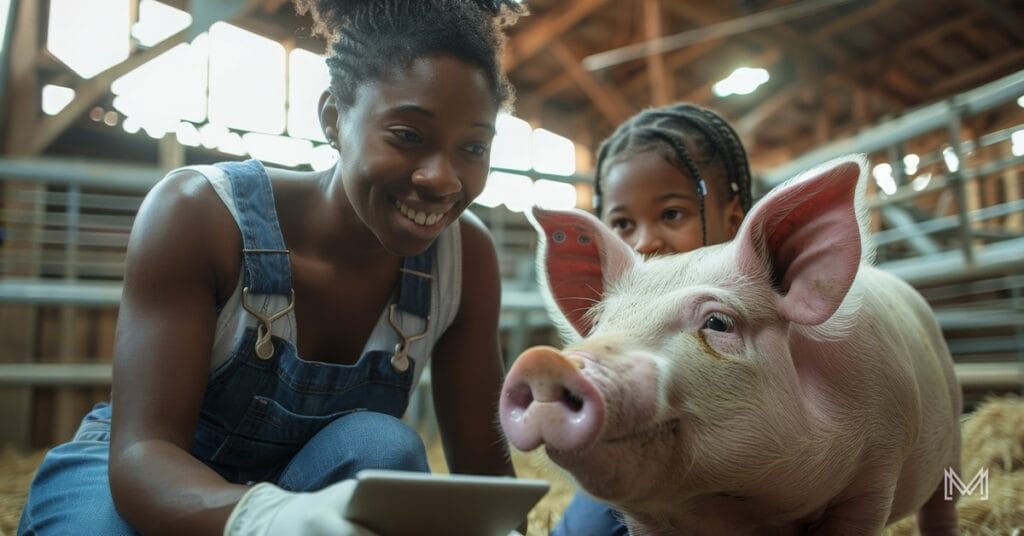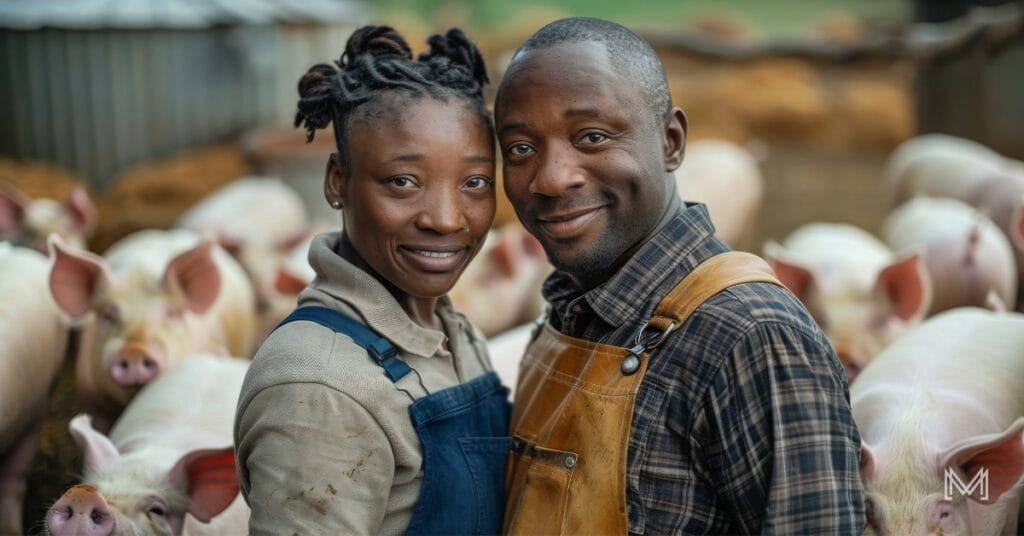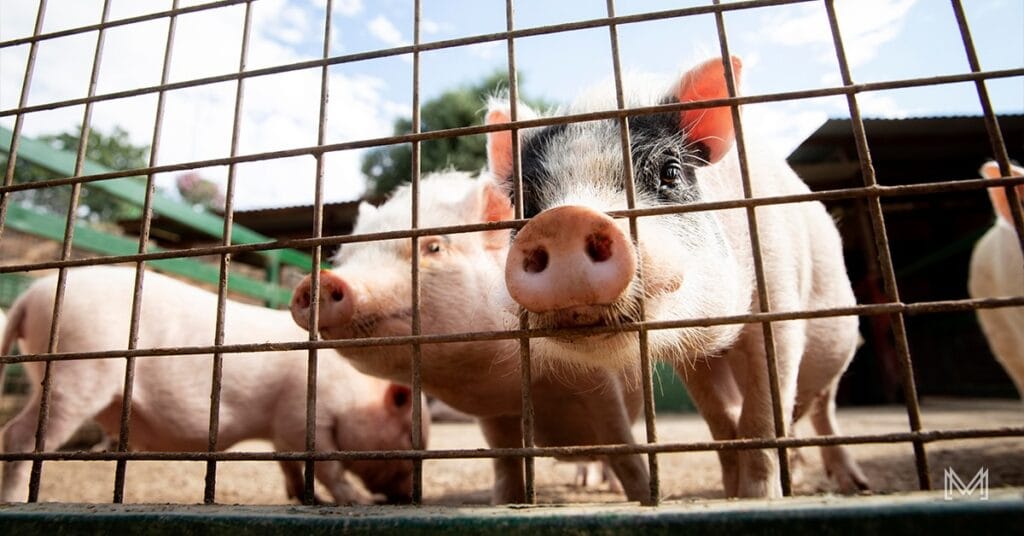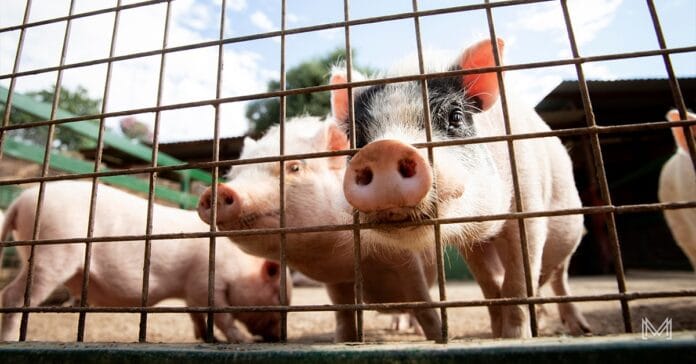From Backyard to Big Business: A Guide to Starting a Pig Farming Business in South Africa
In the heart of South Africa’s thriving agricultural landscape, a quiet revolution is taking place. Ordinary South Africans are discovering the extraordinary potential of the pig farming business. They start from the dusty plains of the Free State and reach the lush valleys of KwaZulu-Natal. Picture this: the sizzle of a perfectly grilled pork chop at a Sunday braai. Imagine the rich aroma of boerewors filling the air. Enjoy the satisfying crunch of crackling that brings families together. These cherished moments fuel a growing demand that savvy entrepreneurs are turning into sustainable livelihoods.
But let’s be real starting a pig farming business isn’t easy. You can’t just throw some piglets in a pen and hope for the best. It requires careful planning, genuine passion, and a willingness to learn the ropes. Many successful farmers started with dreams bigger than their backyards. Their determination was stronger than any obstacle. Today, we’re pulling back the curtain on what it really takes to transform your pig farming dreams into profitable reality.
Why Pig Farming Makes Sense in Modern South Africa
The appeal of piggery farming in South Africa continues to grow stronger each year. Local consumption of pork has steadily increased as more South Africans discover its versatility and value. Unlike some livestock ventures that take years to show returns, pigs offer relatively quick turnover. They reach market weight in just six to eight months. This speed creates cash flow opportunities that many new farmers desperately need.
Effective biosecurity starts at the farm gate; it is your first line of defence against devastating disease outbreaks.
Moreover, South Africa’s diverse climate actually works in favour of the pig farming business. The environment supports piggery farming whether you’re in the Eastern Cape’s rolling hills. It also supports it in the North West Province’s open spaces. This industry can thrive in various regions. The industry has evolved beyond traditional backyard operations. It has transformed into sophisticated, commercially feasible enterprises. These enterprises contribute significantly to our national food security.
What’s particularly exciting is how accessible piggery farming for beginners has become. With proper guidance and realistic planning, even those with limited agricultural experience can enter this field. Many successful operations started with just two breeding sows and grew organically over time. This scalability makes pig farming business particularly attractive to young entrepreneurs seeking entry points into agriculture.

Understanding the Realities of Piggery Farming in South Africa
Before diving headfirst into pig farming, it’s crucial to grasp both the opportunities and challenges. The South African pork industry faces unique dynamics that every prospective farmer must understand. Market prices fluctuate with seasons and economic conditions, while disease management remains a constant concern. Nonetheless, these challenges also create opportunities for those willing to learn and adapt.
One reality that often surprises newcomers is the importance of infrastructure. Proper housing, feeding systems, and waste management aren’t optional extras; they’re fundamental requirements for any sustainable piggery farm. Many new farmers underestimate these costs, leading to operational difficulties down the line. That’s why a solid pig farming business plan becomes your most valuable tool before spending a single rand.
The good news is that South Africa’s agricultural support systems have matured significantly. Organisations like the South African Pork Producers’ Organisation (SAPPO) offer invaluable resources, training programmes, and market connections. Provincial agricultural departments offer extension services that can guide beginners through the complex regulatory landscape. These support structures make piggery farming in South Africa much more achievable than it was even a decade ago.
Crafting Your Winning Pig Farming Business Plan
Every successful pig farming business begins with a comprehensive business plan. This document serves as your roadmap, helping you navigate from starting concept to profitable operation. A well-structured pig farming business plan sample should include market analysis specific to your region. It should also have detailed financial projections. Additionally, it must have clear operational strategies tailored to South African conditions.
When developing your plan, start by researching local pork consumption patterns. Are there butcheries in your area struggling to source quality local pork? Do restaurants express interest in farm-fresh products? Understanding these market dynamics helps position your pig farming business for success from day one.
Financial planning requires special attention. Many beginners focus only on first setup costs while overlooking ongoing operational expenses. Your pig farming business plan PDF should account for feed costs. These costs typically represent 60-70% of total expenses. It should also include veterinary services, labour, and utilities. Additionally, set aside contingency funds for unexpected challenges. Remember that profitability often takes 18-24 months to achieve, so your financial runway must support this timeline.
For those in specific provinces, developing a pig farming business plan in KwaZulu-Natal or Eastern Cape requires understanding regional factors. Water availability, local regulations, and market access vary significantly across provinces. Fortunately, many provincial agricultural departments offer free pig farming business plan templates. They also offer advisory services to help beginners get started correctly.
Selecting the Perfect Location and Setting Up Your Piggery Farm
Location makes or breaks any piggery farming venture. Your ideal site needs reliable water access year-round. It should have good road connectivity for feed delivery and product collection. Make sure there is enough space for future expansion. Many successful farmers recommend starting small, with 10-20 sows, to master the basics before scaling up.
The physical setup of your piggery farm demands careful consideration. Pigs need shelter from both summer heat and winter cold, with proper ventilation to prevent respiratory diseases. In South Africa’s variable climate, this means designing housing that adapts to seasonal changes. Concrete flooring with adequate drainage prevents mud problems, while proper bedding materials guarantee animal comfort and health.
Water management deserves special attention. Pigs consume significant water daily, approximately 10-15 litres per adult pig, and this need increases during hot weather. Your piggery farming setup must include reliable water sources, storage facilities, and efficient delivery systems. Many farmers invest in rainwater harvesting or borehole systems to guarantee water security, especially in drought-prone regions.
Waste management signifies another critical aspect often overlooked by beginners in piggery farming for beginners. Proper slurry management systems prevent environmental contamination and can actually become valuable fertiliser resources. South African environmental regulations demand careful planning here, making this element essential in any serious pig farming business plan.
Choosing the Right Breeds for South African Conditions
Selecting appropriate pig breeds significantly impacts your operation’s success. In South Africa, the Large White, Landrace, and Duroc breeds dominate commercial production. These breeds excel due to their adaptability to local conditions and excellent growth rates. These breeds form the foundation of most successful piggery farms across the country.
For beginners, crossbreeding often yields the best results. The F1 cross, which is typically Landrace x Large White, combines maternal qualities with growth performance. This creates hardy animals well-suited to various South African farming systems. Many established breeders offer quality breeding stock with health certifications, a crucial consideration when starting your pig farming business.

Climate adaptation matters significantly. Commercial breeds work well in controlled environments. Nonetheless, some farmers in hotter regions find success with breeds like the Kolbroek. This breed has natural heat tolerance developed over centuries in South Africa. Yet, these indigenous breeds typically grow slower than commercial varieties, affecting your financial projections in your pig farming business plan.
When purchasing breeding stock, always prefer health status over price. Ask for veterinary health certificates and check the animals’ condition before buying. Many new farmers make the costly mistake of purchasing cheap, unhealthy pigs. These pigs later need expensive treatments or fail to thrive. Remember that quality breeding stock forms the foundation of any profitable pig farming business.
Mastering Feed and Nutrition for Maximum Returns
Feed costs represent the largest expense in any piggery farming operation, typically consuming 65-75% of total production costs. So, optimising feed efficiency directly impacts your bottom line. Understanding pig nutrition requirements at different growth stages becomes essential knowledge for any pig farming business owner.
South African farmers have various feed options available. Commercial pellets offer convenience and balanced nutrition but come at premium prices. Alternatively, many successful operations formulate their own rations using locally available ingredients like maize, soybean meal, and wheat bran. This approach requires nutritional skill but can significantly reduce costs in your pig farming business.
Water quality and availability directly affect feed efficiency. Pigs consume nearly three times more water than feed by weight. Poor water quality can reduce feed intake by up to 30%. Installing reliable watering systems with regular cleaning schedules ensures your pigs keep optimal growth rates. Many profitable piggery farms invest in water testing and treatment systems to guarantee consistent quality.
Feed storage stands as another critical consideration. South Africa’s climate creates perfect conditions for mould growth and pest infestation in stored grains. Proper storage facilities incorporate moisture control, rodent proofing, and regular inventory rotation. These facilities prevent costly feed losses. Such losses derail your carefully planned pig farming business.
Implementing Essential Health and Biosecurity Measures
Disease prevention separates successful piggery farms from failed ventures. South Africa faces significant disease challenges, including African swine fever, swine flu, and various parasitic infections. A single outbreak can devastate an entire operation, making biosecurity your first line of defence in any pig farming business.
Effective biosecurity starts at the farm gate. Limit visitor access, set up footbaths with disinfectant, and need clean clothing for anyone entering pig areas. Many farmers keep separate footwear for different sections of their piggery farm to prevent disease spread between age groups. These simple measures dramatically reduce infection risks.
Veterinary partnerships prove invaluable for sustainable pig farming business operations. Build relationships with veterinarians experienced in swine health before problems arise. Regular health checks, vaccination programmes, and parasite control form the backbone of preventive healthcare. Many successful farmers schedule monthly vet visits as part of their routine management.
Record-keeping provides early warning signs of potential health issues. Tracking feed consumption, weight gain, mortality rates, and medication usage helps find problems before they become crises. Digital record-keeping apps now make this process easier for modern piggery farming operations. These records also prove essential when applying for financing or insurance for your pig farming business.
Navigating Financial Requirements and Funding Opportunities
Capital requirements for starting a pig farming business vary widely depending on scale and infrastructure needs. A small-scale operation with 10 sows need R200,000-R500,000 in first investment, while commercial setups can demand several million rand. Understanding these financial realities prevents undercapitalisation, a common cause of failure among beginners in piggery farming.

South Africa offers various funding opportunities for agricultural entrepreneurs. The Land Bank provides specialised loans for livestock farming, while provincial agricultural departments often have grant programmes for emerging farmers. Organisations like SAPPO sometimes help financing partnerships for members. Your comprehensive pig farming business plan becomes essential when approaching these funding sources.
Cash flow management proves particularly challenging in piggery farming. Income arrives in batches when pigs reach market weight, while expenses occur continuously for feed, utilities, and labour. Many successful farmers keep separate operating accounts with adequate reserves to cover three months of expenses. This financial buffer prevents desperate selling during market downturns.
Insurance considerations deserve attention in your pig farming business planning. Mortality insurance, equipment coverage, and liability protection offer crucial safety nets. While premiums add to operational costs, the protection they offer often proves invaluable during unexpected challenges. Consult with agricultural insurance specialists who understand piggery farming risks specific to South African conditions.
Marketing Your Pork Products Effectively
Understanding market dynamics separates profitable piggery farms from struggling ones. South Africa’s pork market includes formal channels like supermarkets and processors. It also includes informal sectors like street vendors and local markets. Each has different requirements and payment terms. Your marketing strategy should align with your operation’s scale and capabilities.
Direct marketing offers attractive opportunities for small-scale piggery farms. Selling live pigs to local butcheries helps build customer relationships. Supplying restaurants with fresh pork can also strengthen these bonds. Operating a farm stall often yields better margins than commodity markets. Social media platforms now allow farmers to connect directly with consumers seeking quality, locally produced pork products.
Brand development adds value to your pig farming business. Consumers increasingly seek traceable, ethically produced meat. Highlighting your farming practices, animal welfare standards, and local roots creates differentiation in crowded markets. Many successful farmers use simple packaging with clear labelling showing farm origin and production techniques.
Pricing strategies need careful analysis. Track competitor prices while accounting for your production costs. Premium products, like free-range or speciality-breed pork, can command higher prices. You need effective marketing to justify the premium. Your pig farming business plan should include detailed pricing models based on realistic cost calculations.
Overcoming Common Challenges in Piggery Farming
Every pig farming business faces obstacles, especially during the establishment phase. Feed price volatility remains a persistent challenge. Maize and soybean prices fluctuate based on weather. They also change with global markets and policy changes. Successful farmers mitigate this risk through advance contracts, substitute feed ingredients, or diversifying income streams.
Water security presents another significant challenge across South Africa. Drought conditions can devastate piggery farms without adequate reserves. Many innovative farmers invest in water conservation technologies. They also implement rainwater harvesting systems. Additionally, they build drought-resistant infrastructure as part of their long-term pig farming business strategy.
Labour management often proves challenging for new farmers. Piggery farming requires skilled workers who understand animal behaviour, health monitoring, and proper handling techniques. Training investment pays dividends in reduced mortality rates and better productivity. Many successful operations implement incentive programmes that reward workers for achieving production targets.
Regulatory compliance adds complexity to modern piggery farming. Environmental regulations, animal welfare standards, and food safety requirements continue to evolve. Staying informed through industry associations and maintaining proper documentation prevents costly violations. Many farmers find that compliance investments ultimately improve efficiency and market access for their pig farming business.
Scaling Your Pig Farming Business Successfully
Growth should be strategic rather than rushed in any sustainable piggery farm operation. Many successful farmers follow a phased expansion approach, mastering each production stage before adding capacity. This method builds skill while maintaining financial control over your pig farming business development.
Value addition creates significant profit opportunities beyond selling live pigs. Processing pork into products like boerewors, bacon, or speciality items increases revenue per animal while reducing market dependency. Yet, this requires extra skills, equipment investments, and regulatory compliance that must be carefully planned in your expansion strategy.
Technology adoption accelerates growth in modern piggery farming. Automated feeding systems, climate control technologies, and digital monitoring tools improve efficiency and animal welfare. While first investments seem daunting, many technologies pay for themselves through reduced labour costs and improved production factors. South African equipment suppliers now offer various financing options for these upgrades.
Partnership models offer different growth paths for pig farming business owners. Contract farming arrangements with processors offer market security and technical support while sharing investment risks. Cooperative structures allow small-scale farmers to achieve economies of scale in purchasing feed, equipment, and marketing services. These collaborative approaches build resilience in challenging market conditions.
South African Success Stories: Lessons from the Field
Real-world examples inspire and educate aspiring farmers. Sipho Mkhize from KwaZulu-Natal started with two sows in his backyard. Now, he operates a 200-sow commercial piggery farm. He employs eight people. His success came from meticulous record-keeping, continuous learning, and building strong relationships with local butcheries.
In the Eastern Cape, Thandi Nkosi transformed her family’s struggling crop farm. She turned it into a profitable integrated operation. This operation combines crop production with a 50-sow piggery. Her pig farming business plan included using crop residues for feed supplements. Pig manure was used to fertilise fields. This created a sustainable cycle that improved both enterprises.
These success stories share common elements: starting small, focusing on quality, continuous learning, and community engagement. They prove that with proper planning and execution, a pig farming business can thrive even in challenging economic conditions. Their journeys offer practical blueprints for new entrepreneurs entering piggery farming in South Africa.
Your Next Steps: From Planning to Profit
Starting a pig farming business requires commitment but offers remarkable rewards for those prepared to learn and adapt. Begin by connecting with local pig farming associations and attending training workshops. Many provincial agricultural departments offer free introductory courses on piggery farming for beginners that give essential foundational knowledge.
Develop your comprehensive pig farming business plan with realistic timelines and financial projections. Seek mentorship from experienced farmers who can offer practical insights beyond theoretical knowledge. Remember that successful piggery farming combines scientific knowledge with practical experience and intuitive understanding of animal behaviour.
Invest in quality infrastructure from the beginning rather than making costly upgrades later. Your first piggery farm setup should prioritise animal welfare, biosecurity, and efficient workflow. These foundations support sustainable growth and prevent expensive corrections down the line.
Join our Mzansi Magazine community for ongoing support and resources. Our practical guides, templates, and expert interviews help new farmers navigate the complexities of agricultural entrepreneurship. Subscribe to our newsletter for regular updates on funding opportunities, market trends, and technical advancements in South African piggery farming.
The Future of Pig Farming Business in South Africa
The outlook for the pig farming business in South Africa remains bright despite challenges. Growing urbanisation increases demand for convenient protein sources, while food security concerns drive interest in local production. Technological advancements continue making piggery farming more efficient and sustainable, from precision feeding systems to renewable energy integration.
Profitability often takes 18-24 months to achieve, so your financial runway must support this timeline.
Emerging trends like free-range and organic pork production create premium market opportunities for innovative farmers. Consumer interest in traceable, ethically produced food aligns perfectly with small-scale, transparent piggery farming operations. These niche markets often offer better margins and stronger customer loyalty than commodity markets.
Government support programmes continue evolving to support emerging farmers in piggery farming. Initiatives focusing on youth in agriculture, women empowerment, and rural development create access points for new entrepreneurs. Staying informed about these opportunities through industry associations maximises your chances of securing support for your pig farming business.
As South Africa’s population grows and dietary preferences evolve, the need for efficient, sustainable protein production becomes increasingly vital. Piggery farming offers a compelling solution, converting feed efficiently into high-quality protein while creating jobs and supporting rural economies. Your journey into the pig farming business contributes directly to national food security and economic development.
The path of pig farming business in South Africa starts from backyard beginnings and leads to commercial success. This journey rewards dedication. It also requires continuous learning and community connection. With proper planning, realistic expectations, and unwavering commitment, your piggery farming venture can become both personally fulfilling and financially rewarding. The time to start building your legacy in South African agriculture is now.
Frequently Asked Questions – Pig Farming Business
What are the most popular pig breeds recommended for commercial farming in South Africa?
The Large White, Landrace, and Duroc breeds dominate commercial production in South Africa, and the F1 cross (typically Landrace x Large White) often yields the best results for beginners.
What percentage of total production costs do pig feed and nutrition expenses typically represent?
Feed costs represent the largest expense in any piggery farming operation, typically consuming 65-75% of total production costs, thus optimising feed efficiency directly impacts the bottom line.
How long should a new pig farming business owner expect it will take to achieve profitability?
New farmers should budget for a sufficient financial runway because profitability often takes 18-24 months to achieve, despite the quick six-to-eight-month turnaround time for pigs reaching market weight.
What is the most critical first step a pig farmer must implement for disease prevention and sustainability?
Effective biosecurity is the first line of defence against diseases like African swine fever, and it starts at the farm gate by limiting visitor access and ensuring footbaths with disinfectant are used.
Which organisations offer support and resources for emerging pig farmers in South Africa?
Invaluable resources, training programmes, and market connections are offered by the South African Pork Producers’ Organisation (SAPPO), while provincial agricultural departments provide extension services and free business plan templates.



